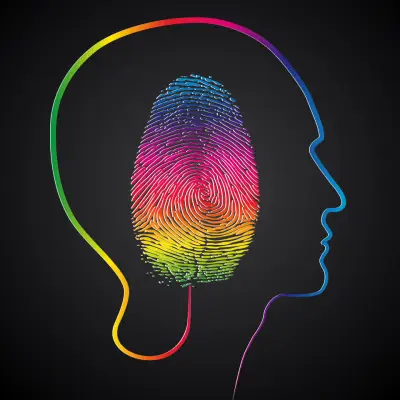Are you feeling trapped in a cycle of negativity, constantly believing that life is against you? This is a common experience for many, but it doesn’t have to be your reality. Understanding and overcoming a victim mindset can lead to a more empowered and fulfilling life. Let’s explore how you can stop playing the victim and take control of your own story.
Jump to:
- What is a Victim Mentality?
- Recognising Victimisation Syndrome
- What is the Root of Victim Mentality?
- How to Break Free from the Victim Mode
- Developing a Growth Mindset
- Building Resilience
- Identifying and Overcoming Self-Victimising Behaviours
- How to Deal with Others Who Have a Victim Mentality
- Frequently Asked Questions About Victim Mentality
- Study the Psychology of Success Diploma for £29
Recommended for you!
Best SellersWhat is a Victim Mentality?
The victim mentality can be summarised as a habitual way of thinking in which a person consistently believes they are a victim of the negative actions of others, feeling powerless to change their circumstances. This mindset often involves blaming others for problems, feeling perpetually wronged, and expecting negative outcomes.
Recognising Victimisation Syndrome

Victimisation syndrome refers to the patterns of thought and behaviour associated with a victim mentality. This can manifest in various ways, including:
- Constant Blaming: Always attributing your problems to external sources.
- Feeling Helpless: Believing that nothing can be done to change your situation.
- Expecting the Worst: Anticipating negative outcomes regardless of circumstances.
What is the Root of Victim Mentality?
The root of victim mentality often lies in past experiences, where you might have genuinely been a victim of unfair treatment or trauma. Over time, these experiences can shape your worldview, leading you to perceive yourself as a perpetual victim even when the circumstances no longer warrant it.
How to Break Free from the Victim Mode
Breaking free from the victim mode requires a conscious effort to change your mindset and behaviour. By taking these initial steps, you can start to regain control over your life and shift from a victim mentality to one of empowerment.
Acknowledge Your Mindset
The first step to stop living in a victim mindset is to acknowledge that it exists. Self-awareness is key. Reflect on your thoughts and behaviours to identify patterns that align with a victim mentality. Ask yourself:
- Do I often blame others for my problems?
- Do I feel powerless to change my situation?
- Do I expect negative outcomes?
Take Responsibility for Your Life
Taking responsibility means recognising that while you may not control everything that happens to you, you do have control over how you respond. This shift in perspective can be transformative. Instead of focusing on what you can’t control, concentrate on what you can change.
Change Your Narrative
Reframe your story from one of victimhood to one of resilience and strength. Focus on your strengths and past successes. Remind yourself of times when you overcame challenges. This helps in building a narrative where you are the hero of your story, not the victim.
Developing a Growth Mindset

Transitioning from a victim mentality to a growth mindset can drastically change your outlook on life. By focusing on personal development and a positive attitude, you can nurture your potential and embrace a more fulfilling way of thinking.
Cultivate Optimism
Start by cultivating an optimistic outlook. This doesn’t mean ignoring problems but rather approaching them with the belief that solutions are possible. Practise gratitude and look for positives in everyday situations. This shift can significantly alter your overall mindset.
Set Goals and Take Action
Setting achievable goals and taking consistent action towards them can help you feel more in control of your life. Break down larger goals into smaller, manageable steps and celebrate your progress along the way.
What is the Difference Between a Victim Mindset and a Growth Mindset?
A growth mindset, as opposed to a victim mindset, involves believing that abilities and intelligence can be developed through dedication and hard work. While a victim mentality focuses on limitations and obstacles, a growth mindset is centred on learning and personal growth.
Building Resilience
Developing resilience is essential for overcoming a victim mentality and navigating life's challenges with strength and adaptability. By enhancing emotional intelligence, seeking support, and learning from setbacks, you can build a more resilient mindset.
Develop Emotional Intelligence
Emotional intelligence involves recognising and understanding your emotions and those of others. This skill can help you navigate life’s challenges more effectively. To enhance your emotional intelligence, practice mindfulness and active listening.
Seek Support
Don’t hesitate to seek support from friends, family, or professionals. Sharing your experiences and feelings can provide relief and offer new perspectives. Sometimes, an external viewpoint can help you see your situation more clearly.
Learn from Setbacks
Instead of viewing setbacks as failures, see them as opportunities to learn and grow. Reflect on what went wrong and how you can improve in the future. This approach fosters resilience and reduces the tendency to fall into a victim mentality.
Identifying and Overcoming Self-Victimising Behaviours

Recognising and addressing self-victimising behaviours is crucial for breaking free from a victim mentality. By becoming aware of these patterns and actively working to change them, you can create a healthier and more empowered mindset.
Recognise Self-Victimising Thoughts
Pay attention to your internal dialogue. Do you frequently wonder, “Why does this always happen to me?” or “It’s not fair”? Recognising these thoughts is the first step in changing them.
Challenge Negative Thoughts
When you notice self-victimising thoughts, challenge them. Ask yourself if there is evidence to support these thoughts or if there might be another way to interpret the situation. This cognitive restructuring can help shift your mindset.
Practise Self-Compassion
Be kind to yourself. Understand that everyone makes mistakes and faces challenges. Treat yourself with the same compassion you would offer a friend in a similar situation. This reduces the harsh self-criticism that often accompanies a victim mentality.
How to Deal with Others Who Have a Victim Mentality
Interacting with someone who has a victim mentality can be challenging, but with the right approach, you can support them without enabling their behaviour. Key strategies include setting boundaries, offering encouragement, and suggesting professional help.
Set Boundaries
When dealing with someone who has a victim mentality, it’s important to set clear boundaries. While being supportive, ensure that you do not enable their self-victimising behaviours. Encourage them to take responsibility and seek solutions.
Offer Encouragement
Encourage positive change by highlighting the person’s strengths and past successes. Help them see their potential and the control they have over their lives. Sometimes, a little encouragement can go a long way in helping someone shift their mindset.
Seek Professional Help
If someone’s victim mentality is severely impacting their life and relationships, it may be beneficial to suggest seeking professional help. Therapists and counsellors can provide the necessary tools and support to facilitate change.
Recommended for you!
Best SellersFrequently Asked Questions About Victim Mentality
What personality plays the victim?
People with certain personality traits or disorders, such as those who exhibit high levels of neuroticism or have narcissistic tendencies, are more likely to adopt a victim mentality. These traits can make a person more sensitive to perceived slights and more likely to blame others for their problems.
Is victim mentality a red flag?
A victim mentality can be a red flag, especially in relationships. It often indicates a person's inability to take responsibility for their actions and circumstances, which can lead to constant blame-shifting and conflict.
Is victim mentality selfish?
Victim mentality can be seen as selfish because it often involves focusing on your own problems and blaming others without considering their perspectives. This mindset can hinder empathy and healthy, reciprocal relationships.
What do you call someone who always plays the victim?
Someone who always plays the victim can be referred to as having a "victim complex" or exhibiting "victim behaviour." These terms describe a consistent pattern of blaming others and feeling persecuted.
How to tell if someone is playing the victim?
Signs that someone is playing the victim include constant complaining, blaming others for their problems, feeling helpless or powerless to change their situation, and expecting others to rescue them. They may also frequently express feelings of being wronged or unfairly treated.
What is the root of victim mentality?
The root of victim mentality often lies in past experiences of trauma, neglect, or unfair treatment. These experiences can shape a person’s worldview, leading them to feel perpetually victimised even in situations where they have control.
Is victim mentality gaslighting?
Victim mentality itself is not gaslighting, but someone with a victim mentality may engage in gaslighting behaviours. Gaslighting involves manipulating someone into doubting their own perceptions, and a person with a victim mindset might do this to maintain their sense of being wronged.
What mental illness is victim mentality?
While victim mentality is not a mental illness itself, it can be associated with certain mental health conditions such as depression, anxiety, or personality disorders. These conditions can exacerbate feelings of helplessness and perpetuate a victim mindset.
How can I deal with a partner who has a victim mentality?
Dealing with a partner who has a victim mentality involves setting clear boundaries, encouraging positive change, and suggesting professional help if necessary. It’s important to support them without enabling their self-victimising behaviours.
How do narcissists play the victim?
Narcissists often play the victim to manipulate others and gain sympathy. They may exaggerate or fabricate situations to appear wronged, deflect blame, and avoid taking responsibility for their actions.
Study the Psychology of Success Diploma for £29
If you’re ready to take the next step in your personal growth journey, consider enrolling in the Psychology of Success Diploma Course with Centre of Excellence. This fascinating course offers valuable insights and practical tools to help you develop a success-oriented mindset. For a limited time, the course is available for a discounted price of £29!













